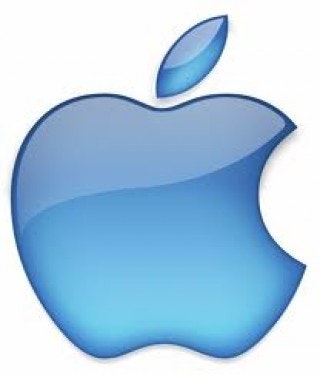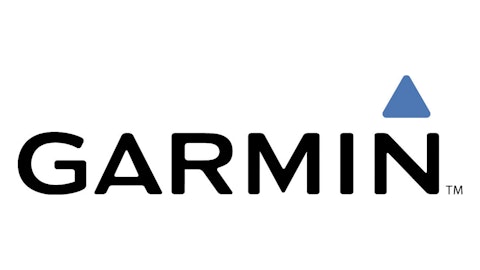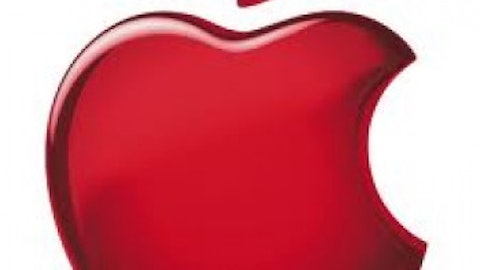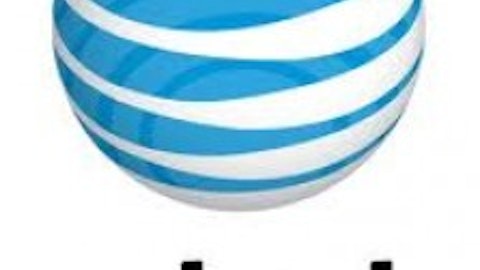This isn’t supposed to be Apple Inc. (NASDAQ:AAPL)‘s week.
We’re seeing iPhone rivals hog the spotlight. Yesterday we saw Research In Motion Ltd (NASDAQ:BBRY) shares soar on buyout chatter and news that the Z10 smartphone will finally hit the stateside market later this month. In two days it will be Samsung’s turn to shine as it unveils the anxiously anticipated Galaxy S IV.
Apple Inc. (NASDAQ:AAPL) doesn’t really have to worry about BlackBerry at the moment. The new BlackBerry 10 mobile operating system is impressive, but developer support will remain lukewarm until it achieves critical mass.
Thursday’s Samsung Unpacked event will be a game changer. If the leaked specs are accurate — the 5-inch screen with 1,080p resolution, the 13-megapixel camera with the ability to snap 3-D pictures, a speedy 1.8GHz processor, and a full two gigs of RAM — Apple’s iPhone 5 will be behind on all fronts.
Spec sheets alone don’t sell smartphones, but the gaps in software advantages and developer support have been narrowing between iPhone and Android.
Apple needs to do something big and bold. How does buying Nextel Corporation (NYSE:S) grab you?
Don’t laugh
Buying the country’s third-largest carrier would seem to be a colossal mistake on many different levels.
The move would upset Apple’s two largest domestic carriers, putting beefy subsidies and support at risk.
Sprint’s still losing a lot money.
Apple would only be tackling the stateside market when the larger problem is the price of its unsubsidized smartphone in overseas markets.
Let’s file that all away in the “I know where you’re coming from” folder, and get right back into why this could be exactly what Apple needs at this juncture.
Apple has a problem, and you’re seeing it on unconfirmed reports of Apple Inc. (NASDAQ:AAPL) scaling back on iPhone 5 and new iPad devices from its suppliers.
Folks are buying the iPad Mini at $329 because it’s perfectly adequate and nearly as good as the $499 iPad. Apple and analysts were surprised with the product mix for iPhones during the holiday quarter as customers went for the cheaper iPhone 4 and iPhone 4S models that are $200 and $100 cheaper, respectively.
Is the primary takeaway here that consumers are trying to save money or that Apple is down to courting penny-pinchers to gain traction with the next wave of mainstream mobile gadgetry shoppers?
Let me introduce a new wrinkle to explain the lack of demand for the iPhone 5 despite its distinct advantages over earlier models. I’ve owned an iPhone through three generations of the defining smartphone, but I’m in no hurry to hop on the iPhone 5. AT&T Inc. (NYSE:T) and Verizon Wireless have grandfathered longtime customers with unlimited data plans, but that perk ends the moment that they upgrade to a 4G device. Verizon Wireless will toss you into tiered pricing unless you pay $450 more for an unsubsidized iPhone 5. AT&T caps the usage at 5 gigabytes before dramatically lowering the connectivity speed.
Sprint is the only one that continues to market unlimited data to new customers, but, yes, it’s also Sprint. There’s a reason why Sprint is a distant bronze medalist despite offering better deal.
Be the carrier
Apple operating a wireless carrier isn’t an original premise.
Veteran wireless industry guru Whitey Bluestein told attendees at last year’s Informa MVNO Industry Summit that Apple was about to start offering wireless service plans directly to iPhone and iPad users. He even pointed to patents filed in 2006 for network architecture that would pave the way for its entry into the carrier market.
It didn’t happen. Apple was a market darling at the time, and an entry into the lower-margin wireless services market would’ve crushed the stock.
However, Apple’s in a different place these days. The stock hit a 52-week low last week. Margins are already starting to contract. The wireless carrier partners that Apple was relying on in the past are haggling over subsidy rates, marketing Android devices over iPhones that result in healthier margins for the carriers, and are now — in the case of AT&T and Verizon Wireless — making it hard to upgrade to an iPhone 5 for longtime iPhone users.
If there was ever a time screaming out for Apple to be its own wireless carrier, that time is now.
Apple could roll out its own carrier, but the smarter bet is to snap up Sprint. As the world’s richest company, Apple can afford it, as well as bankroll the necessary improvements to make it a quality carrier. Buying Sprint also means that Apple wouldn’t be competing against Sprint at the low-end of the market.
Apple won’t face regulatory hurdles as the country’s second-largest smartphone platform buying the third-largest wireless carrier. Having its own carrier — the only one offering unlimited data — would also be a selling point for iPhones. If Apple Inc. (NASDAQ:AAPL) takes the brazen move of limiting new Sprint purchases to Apple devices, the iPhone can position itself as a cheaper ownership proposition than Google Inc (NASDAQ:GOOG)‘s Android on the two larger carriers. It would also make sure that the slim chances of BlackBerry 10 or Windows Phone 8 succeeding get even more svelte.
Buying Sprint would redefine Apple’s positioning, and that’s a good thing at a time when the market hates Apple and everything is coming up Android.
Google’s done it. Why do you think it paid up for Motorola Mobility? Why do you think it rolled out Google Fiber as its own broadband service? Sometimes you have to do some pretty unconventional things to protect one’s turf. Google Android was exactly that! With Google Fiber, the dot-com darling simply didn’t want Internet providers capping usage to the detriment of its flow of online advertising. Now it’s Apple’s turn to do something daring to protect its turf.
The article Apple Buying Sprint Fixes Everything originally appeared on Fool.com and is written by Rick Munarriz
Longtime Fool contributor Rick Munarriz has no position in any stocks mentioned. The Motley Fool recommends Apple and Google. The Motley Fool owns shares of Apple and Google.
Copyright © 1995 – 2013 The Motley Fool, LLC. All rights reserved. The Motley Fool has a disclosure policy.






